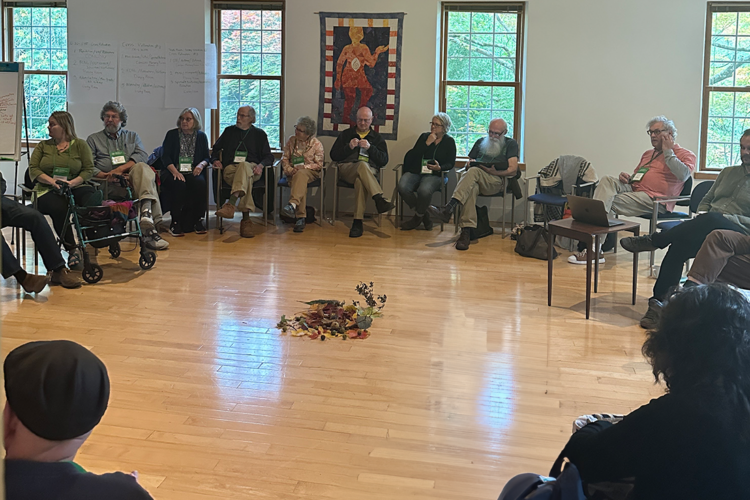On Synthetic Biology

Canada Yearly Meeting in session in August 2012 directed Canadian Friends Service Committee (CFSC) to write to the Canadian federal government to find out about current government efforts to protect the common good from unintended social, biological, and environmental consequences of research and development done in the field of synthetic biology, while sustaining its benefits.
In its letter to the Canadian Minister of Industry in November 2012, CFSC asked:
How can the benefits of this technology be applied in an equitable way, a way that serves the common good?
How can damaging and potentially disastrous consequences to ecosystems and social systems be foreseen and forestalled?
Are there zones of organic processes and ecological relationships that should be ethically off limits for synthetic biology, and, if so, what are they?
To get to this point, CFSC had prepared a brief document called Towards a Quaker Perspective on Synthetic Biology, which was used for discussion at a Special Interest Group at CYM in 2012. This document attempts to answer the question, “What is ‘Synthetic biology’?” and provides some useful links for more information. You can read through the document by going to http://quakerservice.ca/wp-content/uploads/2013/02/Synthetic-biology-concern-at-012013.pdf on the Canadian Friends Service Committee website.
In January 2013, CFSC received a reply to its letter from the Deputy Chief Public Health Officer of the Public Health Agency of Canada, stating, “The Government of Canada is currently exploring the issue of synthetic biology, and as such, your questions are timely and relevant. Currently, the Government does not have answers to the questions that were raised at the CYM of the Religious Society of Friends…. We look forward to working with your organization to further this important dialogue. Your questions will help guide the work ahead of us in this rapidly evolving area of science.”
We will be following this up at CFSC’s meeting in March. I have also brought this issue to the attention of the Biotechnology Reference Group of the Canadian Council of Churches, of which I am the current chair.
If you are concerned about synthetic biology and its potential impacts on human health and the environment, why not organize a learning circle at your Monthly Meeting or community group?

